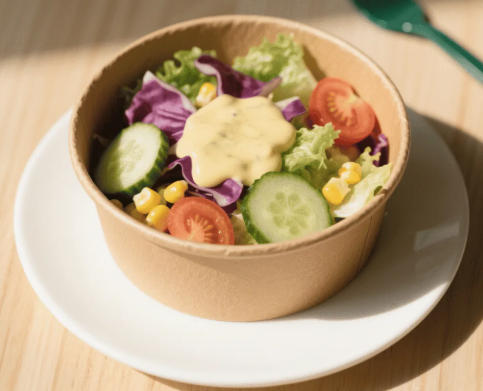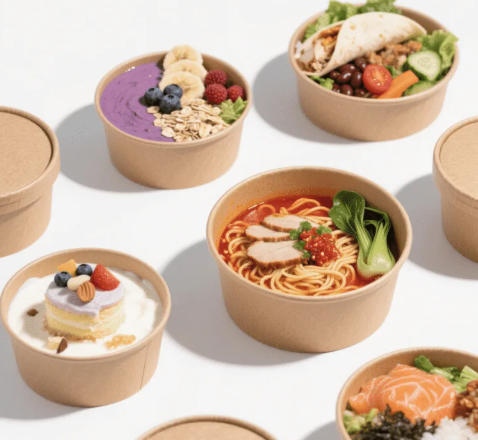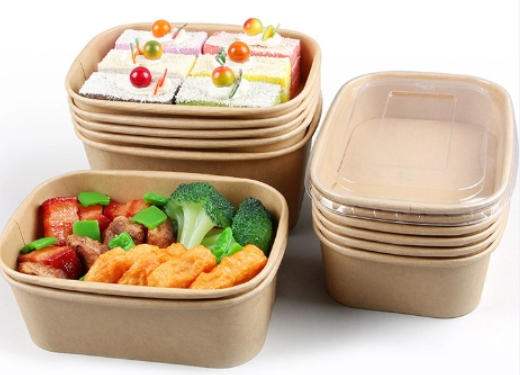
Content Menu
● Industry Overview: Biodegradable Food Packaging in South Korea
>> Market Growth and Regulatory Drivers
>> Consumer Preferences and Lifestyle Shifts
● Materials Revolution: What Makes Korean Eco Bowls Stand Out?
>> Dominant Materials and Environmental Benefits
● Major Players: Top Biodegradable Bowl Manufacturers And Suppliers in South Korea
>> OHBOTTLE Co. Ltd.
>> BioGreen
>> BGFecosolution
>> ChemicalHub Co., Ltd.
>> SEUNG HWA PNP Co., Ltd.
>> Nest-Filler PKG & PACKTORY
>> Other Emerging Companies
● How Manufacurers Meet International OEM Demands
>> OEM Capabilities and Bulk Customization
>> Navigating the Compliance Landscape
● Trends Fueling the Biodegradable Bowl Sector
>> Regulatory Expansion
>> Startup Innovation and New Materials
>> Consumer Awareness and Retail Shifts
● Best Practices for Sourcing Biodegradable Bowls from South Korea
>> Sourcing and Partnership Tips
● Strategic Advantages of Choosing South Korean Suppliers
● Product Innovation: Features of Korean Biodegradable Bowls
● Market Outlook for Biodegradable Bowl Manufacturers And Suppliers in South Korea
● Conclusion
● Frequently Asked Questions
>> 1. What certifications do top biodegradable bowl manufacturers and suppliers in South Korea offer?
>> 2. What materials are commonly used by Korean biodegradable bowl suppliers?
>> 3. How can foreign brands and wholesalers engage with Korean OEM biodegradable bowl manufacturers?
>> 4. What factors should be considered when choosing a Korean biodegradable bowl OEM partner?
>> 5. Are South Korean biodegradable bowl products suitable for all foodservice applications?
● Citations:
South Korea stands at the vanguard of the global shift toward sustainable food packaging, thanks to its advanced manufacturing capabilities, strict regulatory standards, and widespread consumer awareness of the environmental toll of single-use plastics. As governments introduce ambitious bans and consumers increasingly favor brands with a strong eco-profile, the Korean market for biodegradable food service packaging—especially bowls—has undergone exceptional growth and innovation. From bustling Seoul eateries to international food brands, eco-friendly solutions have rapidly replaced conventional disposables.
This article explores the dynamic landscape of South Korea's biodegradable bowl manufacturers and suppliers, including industry drivers, dominant materials, and profiles of top companies providing both ready-made and OEM solutions. Foreign brands, wholesalers, and manufacturers seeking to enter or expand in this space will find in-depth guidance for sourcing trustworthy, compliant, and innovative Korean partners.

Industry Overview: Biodegradable Food Packaging in South Korea
Market Growth and Regulatory Drivers
South Korea's biodegradable packaging industry has seen robust expansion, with market size and product quality rising sharply over the past decade. Regulatory reforms—from mandatory compostable packaging guidelines in over 300 municipalities to incentives supporting climate-friendly packaging—have catalyzed broad adoption. Major cities now require food vendors and delivery services to use certified products, and restaurant platforms increasingly promote outlets that use eco tableware. This strong policy landscape has fostered rapid innovation and the emergence of globally competitive biodegradable bowl manufacturers and suppliers.
Consumer Preferences and Lifestyle Shifts
Modern Korean consumers prioritize transparency in ingredient sourcing and packaging sustainability. Long working hours have driven demand for convenient, on-the-go meals, accelerating the adoption of well-designed bowls that combine functional performance with eco-friendly credentials. Biodegradable bowls—capable of standing up to hot foods, liquids, and even microwave use—are now a staple in foodservice.
Materials Revolution: What Makes Korean Eco Bowls Stand Out?
Dominant Materials and Environmental Benefits
South Korea's leading biodegradable bowl manufacturers and suppliers have embraced a new generation of sustainable materials tailored for both local and export markets:
- Bagasse: The fibrous byproduct of sugarcane, bagasse is compostable, naturally durable, and the most popular base for Korean eco-bowls.
- PLA (Polylactic Acid): Derived from renewable sources such as corn starch, PLA is prized for its compostability and ability to hold liquids and hot foods.
- Wheat Bran: Some innovative suppliers are now using wheat bran, offering cost-effective, truly compostable bowls.
- Paperboard (coated/uncoated): Engineered for durability, water resistance, and compostability, paperboard bowls are widely used and increasingly feature bio-based coatings.
This material mix enables Korean suppliers to offer bowls that combine sustainability, affordability, and superior performance relative to older products.
Major Players: Top Biodegradable Bowl Manufacturers And Suppliers in South Korea
OHBOTTLE Co. Ltd.
OHBOTTLE is one of Korea's premier providers of water-soluble and pulp-based disposable bowls. With an impressive range of certifications and export experience, they serve both local retailers and international bulk buyers seeking sustainable, high-quality products. OHBOTTLE specializes in OEM production for foodservice brands, leveraging advanced molding and branding options to meet custom needs.
BioGreen
BioGreen has built a reputation on the back of R&D-driven development of bagasse-based solutions. Their bowls are certified compostable and suitable for a broad spectrum of foodservice applications. As an OEM specialist, BioGreen offers custom shapes, logo printing, and packaging designs. Their partnership programs enable global distributors to launch eco-branded products with minimal hassle.
BGFecosolution
BGFecosolution leads the way in PLA-based bioplastic innovation, with a comprehensive suite of products for large-scale food packaging applications. They invest heavily in product testing and certification, ensuring safety and environmental standards are uncompromisingly met. Their technical support and scalable OEM options are particularly valued by international clients.
ChemicalHub Co., Ltd.
ChemicalHub stands out for its diverse raw material sourcing and broad international presence. Their bowls are engineered from PLA, bagasse, and recycled pulp, and they cater to different compliance needs across global markets. Flexible OEM agreements, design support, and logistics optimization help ChemicalHub build long-term partnerships with overseas companies.
SEUNG HWA PNP Co., Ltd.
SEUNG HWA PNP is a significant supplier of biodegradable paper and plastic tableware, serving the hospitality and foodservice industries worldwide. Their adaptable manufacturing lines enable quick turnaround on both standard and custom orders, and their quality control is among the most stringent in the Korean industry.
Nest-Filler PKG & PACKTORY
Nest-Filler PKG and PACKTORY's expertise lies in innovative packaging design and tailored solutions. While their portfolios extend beyond bowls, their commitment to sustainable product development supports emerging brands aiming for differentiation in the global marketplace.
Other Emerging Companies
South Korea's startup ecosystem continues to energize the market, with numerous venture-backed firms developing cutting-edge bioplastics and sustainable packaging formats. Support from government accelerators helps these companies commercialize technological advances and grow export capacity.

How Manufacurers Meet International OEM Demands
OEM Capabilities and Bulk Customization
Korean manufacturers provide an extensive range of OEM services, crucial for foreign brands looking to private-label biodegradable bowls:
- Custom Molding: Tailored dimensions, textures, and shapes to fit unique branding needs.
- Printing and Embossing: Logo and design customization using eco-friendly inks.
- Flexible MOQs: Support for both small pilot batches and high-volume bulk orders.
- Multi-format Packaging: Customized packaging for specific retail, foodservice, or wholesale distribution requirements.
- Global Logistics Support: Integrated shipping, customs, and compliance management for seamless delivery.
This combination of technical capability and proactive support is what sets Korean suppliers apart in international partnerships.
Navigating the Compliance Landscape
Compliance is central for suppliers targeting overseas buyers. South Korean companies routinely obtain major certifications including:
- FDA and DIN approvals
- ASTM6400 and EN13432 compostability standards
- Local health and safety compliance
- Eco-labeling for specific international markets
Such certifications facilitate entry into regulated markets and guarantee functional and environmental claims.
Trends Fueling the Biodegradable Bowl Sector
Regulatory Expansion
Korean policymakers have enacted tough new rules to limit single-use plastics. Many municipalities now require food courts and vendors to use compostable packaging, and extended producer responsibility laws ensure manufacturers implement circular-economy practices. Financial incentives drive R&D innovation and infrastructure investment, making Korea one of the most progressive packaging markets in Asia.
Startup Innovation and New Materials
A growing number of startups are pioneering biodegradable bowls using agricultural byproducts, new biopolymers, and even waste streams. These new entrants face challenges in scaling production but benefit from a supportive incubator environment, opening up opportunities for cost reduction and material variety. As startups mature, buyers will have access to even broader options for eco-friendly bowls, further strengthening Korea's reputation.
Consumer Awareness and Retail Shifts
Younger consumers demand more transparency and sustainable choices, prompting retailers and foodservice chains to prioritize eco-labeled and biodegradable bowl offerings. Delivery platforms widely feature and promote restaurants using compostable packaging. Convenient, ready-to-eat bowls made from sustainable materials are now integral to the modern Korean lifestyle.
Best Practices for Sourcing Biodegradable Bowls from South Korea
Sourcing and Partnership Tips
- Always request samples and up-to-date certifications to verify claims.
- Align on branding, printing, and product design requirements early in negotiations.
- Confirm manufacturing scalability and logistics reliability with test or reference orders.
- Collaborate with companies experienced in both domestic Korean and global compliance regulations.
- Evaluate suppliers' export track records, after-sales support, and adaptation capacity to changing international laws.
Strategic Advantages of Choosing South Korean Suppliers
South Korea's supply chain is considered among the most reliable in the region thanks to digital process management, strong export infrastructure, and partnerships with global forwarders. Lead times are competitive, and Korean companies offer both rapid prototyping and efficient bulk production, giving buyers flexibility. The combination of regulatory compliance, scalable capacity, and innovative product portfolios positions Korean suppliers as ideal partners for international brands focused on sustainability.
Product Innovation: Features of Korean Biodegradable Bowls
- Microwave and freezer safe: Advanced material science allows many bowls to withstand heat and cold.
- Strength and water resistance: Optimized for takeout foods, soups, rice bowls, and multi-use foodservice needs.
- Aesthetic options: Attractive finishes, natural colors, and custom branding give international buyers market advantage.
- Functional variety: From single-serving containers to multi-compartment bowls for deli, catering, and institutional use.
- End-of-life management: Products designed for efficient composting or recycling in home and commercial contexts.
Market Outlook for Biodegradable Bowl Manufacturers And Suppliers in South Korea
Industry forecasts suggest sustained growth for biodegradable food service disposables in South Korea, bolstered by continuing policy reforms, consumer demand, and supply chain upgrades. Companies are expected to intensify R&D into cheaper, more efficient materials and make advanced designs standard. This signals new opportunities for foreign buyers who prioritize eco-packaging and seek reliable OEM partners.
Conclusion
South Korea has emerged as a global leader in the production and export of biodegradable bowls, driven by advanced manufacturing technologies, a robust regulatory environment, and consumer commitment to sustainability. Leading manufacturers such as OHBOTTLE, BioGreen, BGFecosolution, ChemicalHub, SEUNG HWA PNP, and innovative startups are setting global standards in quality, safety, and eco-innovation. By partnering with these top Korean suppliers, brands, wholesalers, and manufacturers worldwide can deliver high-performance, environmentally conscious products to their customers while supporting the shift toward a circular economy. Selecting a supplier with proven OEM capabilities, strong certifications, and reliable export experience is key to successful market entry and growth.

Frequently Asked Questions
1. What certifications do top biodegradable bowl manufacturers and suppliers in South Korea offer?
Top manufacturers routinely obtain global certifications—including FDA, DIN, ASTM6400, and EN13432—ensuring food safety and compostability for both domestic and international markets.
2. What materials are commonly used by Korean biodegradable bowl suppliers?
Korean suppliers lead with bagasse, PLA bioplastics, wheat bran, and advanced coated paperboard, each delivering specific functional benefits including strength, heat resistance, and rapid biodegradability.
3. How can foreign brands and wholesalers engage with Korean OEM biodegradable bowl manufacturers?
International buyers can engage by requesting samples, checking certifications, defining OEM specs for custom designs, negotiating MOQs, and reviewing supplier export track records to ensure reliability.
4. What factors should be considered when choosing a Korean biodegradable bowl OEM partner?
Key factors include compliance certifications, material sustainability, product and customization capability, production scalability, export experience, and robust after-sales support.
5. Are South Korean biodegradable bowl products suitable for all foodservice applications?
Yes, major suppliers manufacture bowls engineered to handle hot and cold foods, liquids, and microwave use, ensuring their products fit a wide range of foodservice applications.
Citations:
[1](https://www.linkedin.com/pulse/south-korea-biodegradable-paper-tableware-market-size-xlofc)
[2](https://www.futuremarketinsights.com/reports/demand-and-trend-analysis-of-bagasse-tableware-product-in-korea)
[3](https://www.globalinsightservices.com/reports/eco-bowls-market/)
[4](https://www.linkedin.com/pulse/south-korea-paper-bowl-making-machine-market-key-highlights-966he)
[5](https://www.coherentmi.com/industry-reports/south-korea-biodegradable-packaging-market)
[6](https://www.datainsightsmarket.com/reports/eco-bowls-1884324)
[7](https://www.usdanalytics.com/industry-reports/biodegradable-tableware-market)
[8](https://www.marketdataforecast.com/market-reports/asia-pacific-biodegradable-food-service-disposables-market)
[9](https://www.techsciresearch.com/report/biodegradable-tableware-market/22893.html)
[10](https://www.fortunebusinessinsights.com/biodegradable-tableware-market-107282)

















